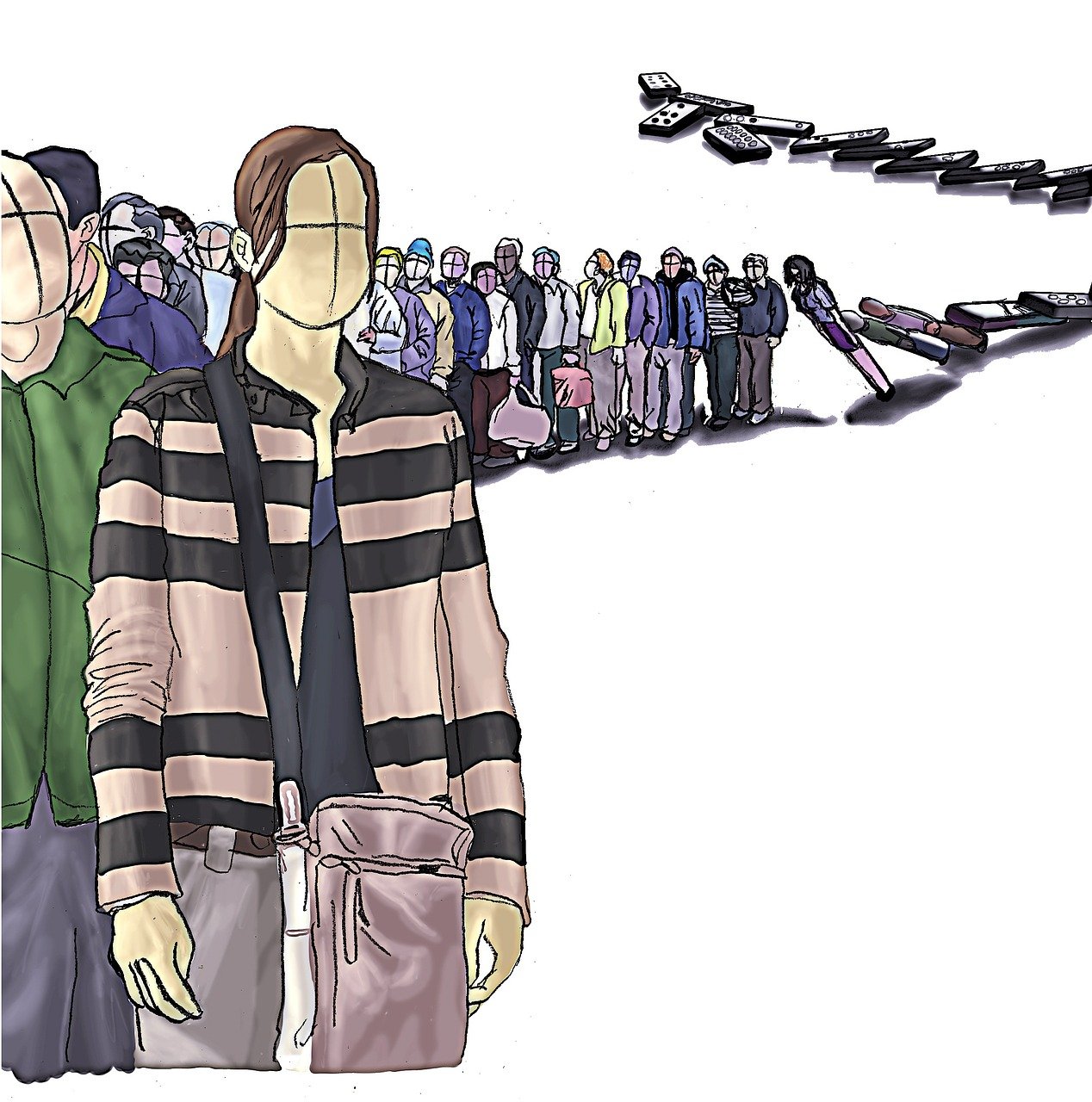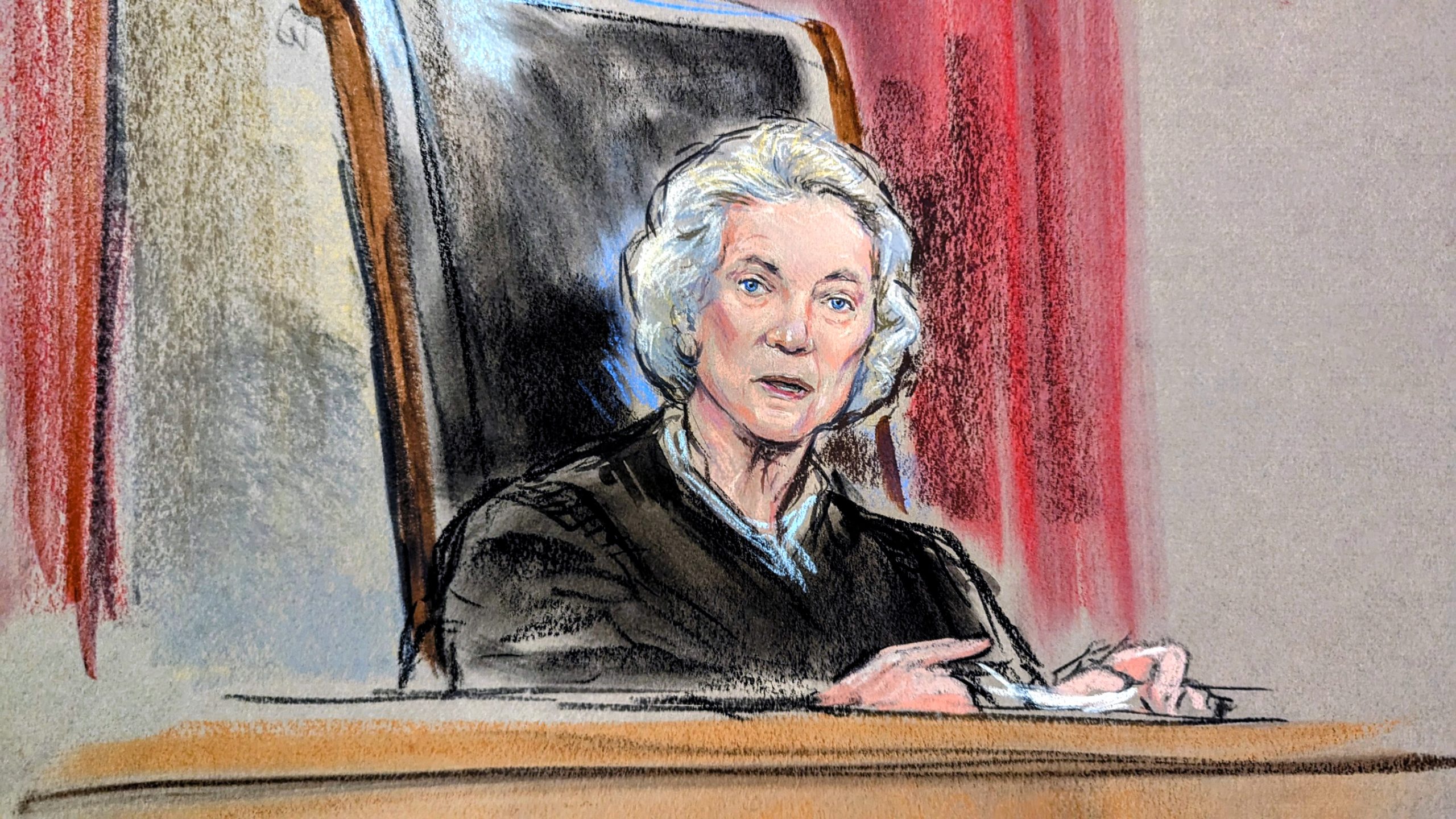RICO injury, federal jurisdiction, and giving veterans the benefit of the doubt
RELIST WATCH
on Apr 26, 2024
at 12:08 pm
The Relist Watch column examines cert petitions that the Supreme Court has “relisted” for its upcoming conference. A short explanation of relists is available here.
The Supreme Court is back in the relist business with a vengeance. On Monday, it granted review of the Biden administration’s newly relisted petition seeking to establish the lawfulness of its efforts to regulate so-called “ghost guns,” as well as the Commonwealth of Virginia’s first-time relist arguing that a plaintiff who won a preliminary injunction enjoining a state law (but who did not secure a final judgment) may nonetheless be considered a “prevailing party” entitled to attorney’s fees.
The court will be considering 123 petitions and applications at this week’s conference. There are four newly relisted cases among that group that represent the likeliest candidates for the court’s review. One of those four involves an issue on which the court already is considering 11 other relisted cases: whether the Sixth and 14th Amendments require the use of a 12-person jury to try defendants accused of felonies, rather than the six-person jury Florida affords for many such offenses.
First up is what I think is the likeliest grant: Medical Marijuana, Inc. v. Horn. Douglas J. Horn lost his job as a commercial truck driver after a drug test he took reflected the presence of tetrahydrocannabinol (“THC”), the active chemical compound in marijuana. Horn maintained that he ingested THC unwittingly by consuming a cannabis-derived product that Medical Marijuana, Inc. marketed as THC-free.
Horn sued, alleging injury under the Racketeer Influenced and Corrupt Organizations Act. The district court held that Horn lacked RICO standing because he sued for economic injuries from loss of earnings that were derived from his personal injury (exposure to THC). The U.S. Court of Appeals for the 2nd Circuit reversed, holding that although RICO only permits suit by a plaintiff “injured in his business or property” by racketeering activity, an economic injury resulting from personal injury sufficed.
Medical Marijuana, represented by Supreme Court veteran Lisa Blatt, petitions for review, arguing that the courts of appeals “are divided on whether economic damages arising from persual injuries … support civil RICO liability.” Medical Marijuana notes that the Supreme Court indicated – a bit offhandedly, in an opinion addressing another issue – that RICO’s private cause of action “exclud[ed], for example, personal injuries.” If granted, it should make for an interesting argument.
You might think that is surely the most colorful relist we get, but this week we have some competition in Royal Canin U.S.A., Inc. v. Wullschleger. Anastasia Wullschleger’s dog, Clinton, suffered from health problems. So also for Geraldine Brewer’s cat, Sassie. Veterinarians recommended they be fed specialized food available only by prescription. While the prescription food contained different ingredients than regular pet food, it included no medication. Wullschleger and Brewer brought a putative class action in Missouri state court, alleging that the “prescription” designation is misleading because the Food and Drug Administration never evaluated the product, and that they were injured by the food’s higher price. They alleged violation of Missouri’s antitrust and consumer-protection laws, and that defendants had been unjustly enriched, among other things.
Royal Canin and Purina, the pet-food makers, removed the case to federal court, arguing that the antitrust and unjust enrichment claims implicated federal law issues. Wullschleger and Brewer amended the complaint to eliminate all references to federal law and sought to have the case remanded to state court. The district court refused, but the U.S. Court of Appeals for the 8th Circuit agreed and ordered remand. Royal Canin and Purina now petition for review, arguing that the 8th Circuit “departed from uniform law in all other circuits,” which it says does not permit plaintiffs to amend their way out of federal court back into state court.
Last up is Bufkin v. McDonough, Secretary of Veterans Affairs. Section 5107(b) of Title 38 provides that, “[w]hen there is an approximate balance of positive and negative evidence regarding any issue material to the determination of a matter, the Secretary [of Veterans Affairs] shall give the benefit of the doubt to the claimant.” Congress later enacted the Veterans Benefits Act, codified in relevant part at 38 U.S.C. § 7261(b)(1), which requires the U.S. Court of Appeals for Veterans Claims (the “Veterans Court”) to “take due account of the Secretary’s application of section 5107(b)” as part of its review of benefits appeals.
Veterans Joshua Bufkin and Norman Thornton were each denied benefits despite evidence that appeared to be in “approximate balance.” In reviewing the Veterans Court decision, the U.S. Court of Appeals for the Federal Circuit held that Section 7261(b)(1) “does not require the Veterans Court to conduct any review of the benefit of the doubt issue beyond” performing the usual review of the underlying factual findings for clear error — a basic procedural requirement that was already in place before enactment of the Veterans Benefits Act. Bufkin and Thornton now seek review, arguing that “the Federal Circuit ignored the plain text of the statute and frustrated Congress’s clear intent to provide for enhanced appellate review and enforcement of the benefit-of-the-doubt rule.”
We’ll know more soon. Until next time!
New Relists
Medical Marijuana, Inc. v. Horn, 23-365
Issue: Whether economic harms resulting from personal injuries are injuries to “business or property by reason of” the defendant’s acts for purposes of a civil treble-damages action under the Racketeer Influenced and Corrupt Organizations Act.
(relisted after the Apr. 19 conference)
Royal Canin U.S.A., Inc. v. Wullschleger, 23-677
Issues: (1) Whether a post-removal amendment of a complaint to omit federal questions defeats federal-question subject matter jurisdiction pursuant to 28 U.S.C. § 1331; and (2) whether such a post-removal amendment of a complaint precludes a district court from exercising supplemental jurisdiction over the plaintiff’s remaining state-law claims pursuant to 28 U.S.C. § 1367.
(relisted after the Apr. 19 conference)
Bufkin v. McDonough, Secretary of Veteran’s Affairs, 23-713
Issue: Whether the Veterans Court must ensure that the benefit-of-the-doubt rule was properly applied during the claims process in order to satisfy 38 U.S.C. § 7261(b)(1), which directs the Veterans Court to “take due account” of VA’s application of that rule.
(relisted after the Apr. 19 conference)
Onterrious v. Tillman, 23-6304
Issue: Whether the Sixth and Fourteenth Amendments guarantee the right to a trial by a 12-person jury when the defendant is charged with a felony.
(relisted after the Apr. 19 conference)
Returning Relists
Hamm v. Smith, 23-167
Issues: (1) Whether Hall v. Florida and Moore v. Texas mandate that courts deem the standard of “significantly subaverage intellectual functioning” for determining intellectual disability in Atkins v. Virginia satisfied when an offender’s lowest IQ score, decreased by one standard error of measurement, is 70 or below; and (2) whether the court should overrule Hall and Moore, or at least clarify that they permit courts to consider multiple IQ scores and the probability that an offender’s IQ does not fall at the bottom of the lowest IQ score’s error range.
(relisted after the Jan. 5, Jan. 12, Jan. 19, Feb. 16, Feb. 23, Mar. 1, Mar. 15, Mar. 22, Mar. 28, Apr. 12 and Apr. 19 conferences)
Sandoval v. Texas, 23-5618
Issues: (1) How courts should determine when jury empanelment begins for a particular defendant’s case, triggering the due process right to be present, given that jury selection is one of the most critical phases of a criminal trial; and (2) whether the state court erred when it held, without analysis of the underlying facts, that the trial court did not violate Gustavo Sandoval’s due process rights when it excluded him and his counsel from proceedings in which members of the jury panel who were called for his trial — and who knew the case that they were summoned for — sought discretionary excusals from the court.
(relisted after the Feb. 16, Feb. 23, Mar. 1, Mar. 15, Mar. 22, Mar. 28, Apr. 12 and Apr. 19 conferences)
Bouarfa v. Mayorkas, 23-583
Issue: Whether a visa petitioner may obtain judicial review when an approved petition is revoked on the basis of nondiscretionary criteria.
(relisted after the Apr. 12 and Apr. 19 conferences)
Cunningham v. Florida, 23-5171
Issue: Whether the Sixth and Fourteenth Amendments guarantee the right to trial by a 12-person jury when the defendant is charged with a felony
(rescheduled before the Nov. 17, Dec. 1, Dec. 8, Jan. 5, Jan. 12, Jan. 19, Feb. 16, Feb. 23, Mar. 1, Mar. 15, Mar. 22 and Mar 28 conferences; relisted after the Apr. 12 and Apr. 19 conferences)
Guzman v. Florida, 23-5173
Issue: Whether the Sixth and Fourteenth Amendments guarantee the right to trial by a 12-person jury when the defendant is charged with a felony
(rescheduled before the Dec. 1, Dec. 8, Jan. 5, Jan. 12, Jan. 19, Feb. 16, Feb. 23, Mar. 1, Mar. 15, Mar. 22 and Mar 28 conferences; relisted after the Apr. 12 and Apr. 19 conferences)
Crane v. Florida, 23-5455
Issue: Whether the Sixth and Fourteenth Amendments guarantee the right to trial by a 12-person jury when the defendant is charged with a felony
(rescheduled before the Dec. 1, Dec. 8, Jan. 5, Jan. 12, Jan. 19, Feb. 16, Feb. 23, Mar. 1, Mar. 15, Mar. 22 and Mar 28 conferences; relisted after the Apr. 12 and Apr. 19 conferences)
Arellano-Ramirez v. Florida, 23-5567
Issue: Whether the Sixth and Fourteenth Amendments guarantee the right to trial by a 12-person jury when the defendant is charged with a felony
(rescheduled before the Dec. 1, Dec. 8, Jan. 5, Jan. 12, Jan. 19, Feb. 16, Feb. 23, Mar. 1, Mar. 15, Mar. 22 and Mar 28 conferences; relisted after the Apr. 12 and Apr. 19 conferences)
Jackson v. Florida, 23-5570
Issue:Whether the Sixth and Fourteenth Amendments guarantee the right to trial by a 12-person jury when the defendant is charged with a felony
(rescheduled before the Dec. 1, Dec. 8, Jan. 5, Jan. 12, Jan. 19, Feb. 16, Feb. 23, Mar. 1, Mar. 15, Mar. 22 and Mar 28 conferences; relisted after the Apr. 12 and Apr. 19 conferences)
Sposato v. Florida, 23-5575
Issue: Whether the Sixth and Fourteenth Amendments guarantee the right to trial by a 12-person jury when the defendant is charged with a felony
(rescheduled before the Dec. 1, Dec. 8, Jan. 5, Jan. 12, Jan. 19, Feb. 16, Feb. 23, Mar. 1, Mar. 15, Mar. 22 and Mar 28 conferences; relisted after the Apr. 12 and Apr. 19 conferences)
Morton v. Florida, 23-5579
Issue: Whether the Sixth and Fourteenth Amendments guarantee the right to trial by a 12-person jury when the defendant is charged with a felony
(rescheduled before the Dec. 1, Dec. 8, Jan. 5, Jan. 12, Jan. 19, Feb. 16, Feb. 23, Mar. 1, Mar. 15, Mar. 22 and Mar 28 conferences; relisted after the Apr. 12 and Apr. 19 conferences)
Aiken v. Florida, 23-5794
Issue: Whether the Sixth and Fourteenth Amendments guarantee the right to a trial by a 12-person jury when the defendant is charged with a felony.
(rescheduled before the Mar. 22 and Mar 28 conferences; relisted after the Apr. 12 and Apr. 19 conferences)
Enrriquez v. Florida, 23-5965
Issue: Whether the Sixth and Fourteenth Amendments guarantee the right to a trial by a 12-person jury when the defendant is charged with a felony.
(rescheduled before the Mar. 15, Mar. 22 and Mar 28 conferences; relisted after the Apr. 12 and Apr. 19 conferences)
Bartee v. Florida, 23-6143
Issue: Whether the Sixth and Fourteenth Amendments guarantee the right to a trial by a 12-person jury when the defendant is charged with a felony.
(relisted after the Apr. 12 and Apr. 19 conferences)
Manning v. Florida, 23-6049
Issue: Whether the Sixth and Fourteenth Amendments guarantee the right to a trial by a 12-person jury when the defendant is charged with a felony.
(rescheduled before the Mar. 22 and Mar 28 conferences; relisted after the Apr. 12 and Apr. 19 conferences)






